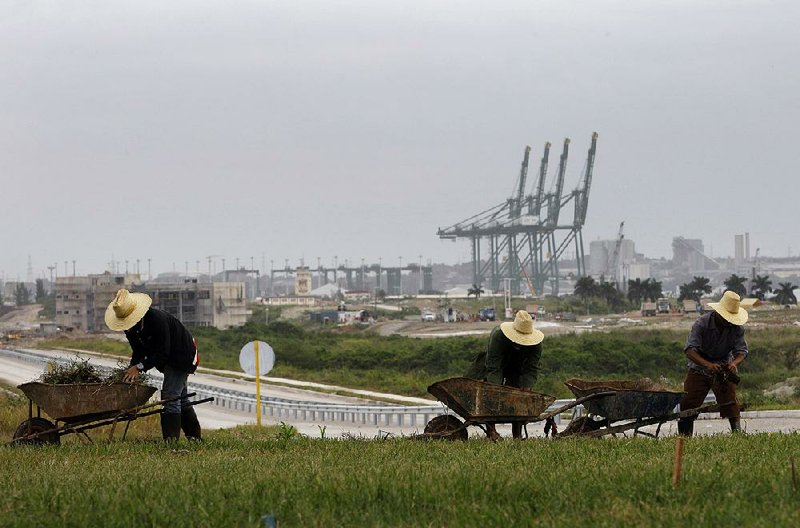HAVANA - Cuban authorities are on the verge of enacting a foreign-investment law considered one of the most vital building blocks of President Raul Castro’s effort to overhaul the country’s struggling economy.
The law is seen as so important that a session of parliament has been scheduled for today so the matter doesn’t wait several months until the regular summer session.
Few details have been made public, but this week official media gave some hints of what the draft looks like.
The newspaper Juventud Rebelde said the law will allow foreign participation in all sectors except health and education, and not only through joint partnerships with the socialist government. Also allowed would be an “international economic association contract, or business of completely foreign capital.”
Juventud Rebelde said most companies would be taxed at 15 percent of profits, half of what they pay under current rules, and they will be exempt from paying for the first eight years of operation. Investors apparently will not see their personal income taxed.
Duties may be higher for operations that exploit natural resources, such as nickel and fossil fuels.
Foreign investment in the Communist-run country has lagged behind expectations in recent years, and the shortfall is seen as a major reason for disappointing economic growth. Analysts say that officials must show they are truly committed to easing the way for foreign firms if this latest attempt to lure overseas capital is to succeed.
“It’s really about [creating] a business climate in which business feels government at senior levels has an unambiguously favorable attitude toward foreign investors,” said Richard Feinberg, a professor of international political economy at the University of California, San Diego. “That’s the best guarantee.”
“If this law gives the right signals,” Feinberg said, “it would be a major step forward in the economic reforms.”
Cuba isn’t the easiest place for foreign businesses to make a buck.
Labor taxes are high, there is no open bidding for projects, the approval process is opaque and cumbersome, and the government has been reluctant to let outsiders have majority ownership.
Companies often find themselves negotiating multimillion-dollar deals with government officials who earn tiny salaries, and some say payoffs are an unfortunate part of doing business in Cuba.
At the same time, a crackdown on graft - including the jailing of Canadian, Chilean, Czech, English and French citizens - has sent a chill through the foreign business community.
Then there’s the 52-yearold U.S. embargo, which bars most American trade with the island and effectively obliges many foreign companies to choose between doing business with Cuba or the United States.
There’s no sign the embargo will be lifted anytime soon, but observers say Cuba can make itself more attractive to investors by doing things like making approvals more transparent, easing payroll taxes, enabling direct hiring of local employees and relaxing rules that require foreign companies to purchase a certain amount of local inputs.
Business, Pages 27 on 03/29/2014

